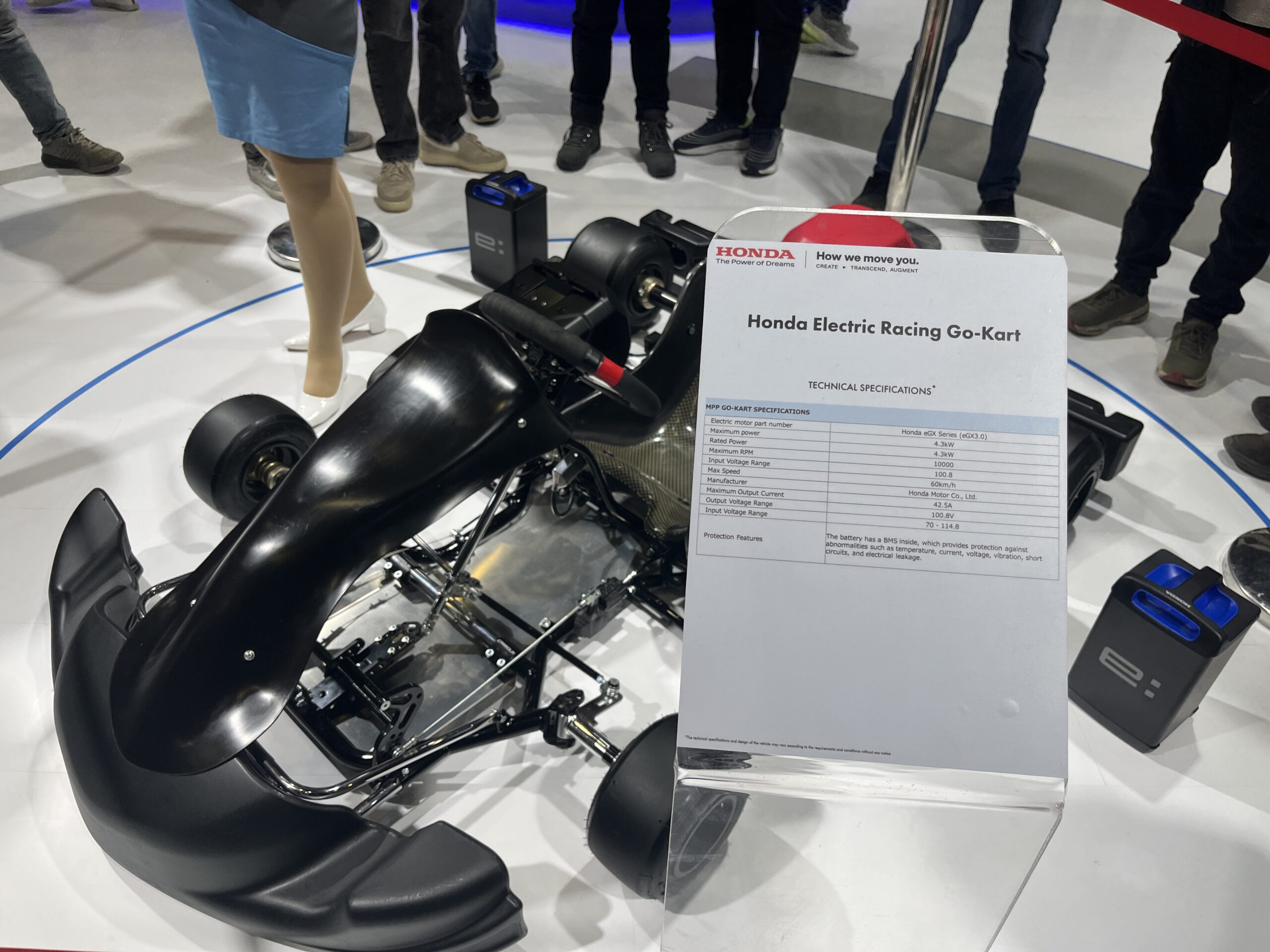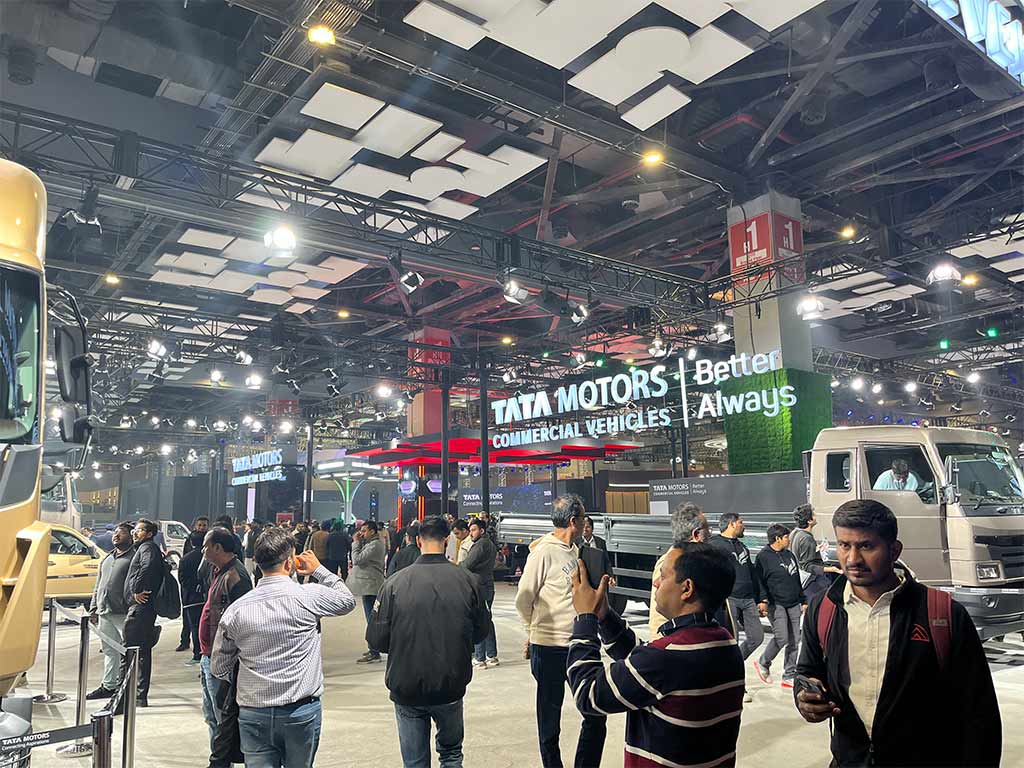Bharat Mobility Global Expo – the mirror of the country’s growing automobile sector – witnessed the future riding on electric vehicles and greener innovations. Ministry of Commerce and Industry held the event in collaboration with the Engineering Export Promotion Council (EEPC) of India in the Delhi NCR region in the last week of January. Held across three venues, including Bharat Mandapam in New Delhi, Yashobhoomi in Dwarka and India Expo Mart in Greater Noida, showcasing over 1,500 exhibitors, the event marked the launch of 56 new products from 22 different brands.
The Voices student reporter brings glimpses for the autophile community, wherein the Vinfast (Vietnamese automaker) and Chinese EV maker BYD made their debut in Indian markets. Innovative integrated solar panels, zero-emission flying taxi, noise-free operations, the first-ever vehicle that can be converted from three-wheeler to two-wheeler, etc., were some creations that stole the show. Focus remained on promoting green technologies and next generation vehicles.
Inaugurating the event, Prime Minister Sh Narendra Modi shared his vision for the future of mobility in India. He addressed climate and pollution issues, urging the public to adopt electric mobility for a cleaner future.
Exciting Games and Shows
The BMW electric car drift pulled the crowd with its electrifying performance, while the Mercedes-Benz electric G-Wagon drew attention for its rugged design and advanced technology. The car crash test demonstration showcased vehicle safety features and offered a chance to drive luxury sports cars.
The Honda group developed an innovative live bike design feature enabling visitors to design bikes in Adobe Photoshop. It showcased the process of motorcycle creation in real time. Car driving, spin the wheel, quizzes with freebies, and exciting gifts kept the young visitors engaged.
BMW Electric Car Drift Performance

Reddy Customs
Reddy Customs, an Indian automotive customization and modification company, gave a tour of the latest mobile camper house, a luxury house on wheels expected to be launched this year. The capsule house/capsule trailer can be hooked behind a 4 by 4 vehicle to enjoy camping or outings.
Reddy Customs Camper House Tour
Among the innovations, the one that pulled the crowd was the prototype of India’s first flying air taxi, Shunya, developed by Bangalore-based Sarla Aviations. Focused on cutting-edge aviation technology, this EV aims to revolutionize urban transportation by providing a sustainable, emission-free alternative to traditional modes of travel.

An urban air mobility (UAM) solution plans to address key issues such as traffic congestion, pollution, and a better transport system. It’s powered by renewable energy to reduce carbon emissions and the environmental impact of urban air transportation. This aligns with global efforts to reduce pollution. Its launch is expected by 2028.
Maruti Suzuki Flying Car

Manufactured in Japan, the Maruti Suzuki Flying Car is expected to be available by 2031. It’s an electric flying car with vertical takeoff and landing (VTOL) capabilities to reduce traffic congestion and pollution by offering a clean, efficient alternative to traditional transportation, focusing on reducing emissions. Integrating electric and autonomous technology aims to create a greener, more efficient future for urban commuting.
Surge S32 (Developed by Surge Mobility)
Three wheeler Auto to two wheeler scooty conversion video of Surge S32
The Surge S32 claims to be the world’s first electric three-wheeler to convert into a two-wheeler. Developed by Surge Mobility, an Indian startup, this innovative vehicle offers flexibility for urban commuters, allowing them to switch between a stable three-wheeler mode for safety and a more agile two-wheeler mode for navigating through traffic it will be eco-friendly electric mobility, reducing emissions and fuel consumption. It is especially beneficial for vehicles like auto-rickshaws, as it allows operators to switch between a three-wheeler and a two-wheeler, depending on traffic conditions and passenger needs. It is expected to launch in India in 2025, catering to the growing demand for urban transportation.
DC2 Mercury Bus by DC Design

The DC2 Mercury Bus is an electric, eco-friendly public transportation solution developed by DC Design, which also designed the car from the Bollywood movie Tarzan: The Wonder Car. DC Design is known for its innovative automotive creations. The DC2 Mercury Bus, which is powered by electricity, is expected to be launched in India this year. The bus features modern design and energy-efficient technologies. It helps create a cleaner, greener environment by eliminating harmful emissions and reducing noise pollution, all while providing a comfortable and futuristic travel experience for passengers.
EVA Car Developed by EVage

The Indian automaker EVage develops the EVA car. It’s an electric vehicle with solar panels that generate electricity to charge its battery. Solar energy reduces reliance on grid power, lowering carbon emissions and contributing to the fight against climate change. The expected launch date for the EVA car is this year.
Yamaha Wave Hero Bike

Yamaha’s Wave Hero bike is a futuristic motorcycle prototype featured in an anime called Tokyo Override, streaming on Netflix. It combines cutting-edge design and technology. The bike is Yamaha’s vision for advanced, possibly electric, motorcycles, highlighting features like enhanced performance and smart technologies. Although it’s currently a concept in the anime, it may influence future real-world motorcycle designs.
The future of car racing and sports is also shifting towards electronic technologies, with automobile giants like Honda launching its Electric Racing Go-Kart.


Bharat Mobility Global Expo 2025 proved to be a landmark event that showcased the future of transportation through development and technological innovation. Every brand at the expo showed a strong commitment to addressing climate change by focusing on green technologies, electric mobility, and eco-friendly solutions. From electric vehicles and solar-powered prototypes to advancements in battery technology, each exhibitor emphasized reducing environmental impact and promoting sustainable growth. The expo highlighted the need to create a cleaner, more efficient transportation system.
One of the experts, Raj Banerjee, said that the future of road mobility depends entirely on EVs; therefore, the related infrastructure also has to be developed. Mayank, a DU student preparing for a government exam, mentioned that the vehicles showcased have initiated the end of an era when fossil fuel-driven vehicles shall soon be edged out. S.K. Nigam, the owner of a digital marketing company, said that the auto show displayed the auto industry’s future.
Copy Editor: Megha Mann

